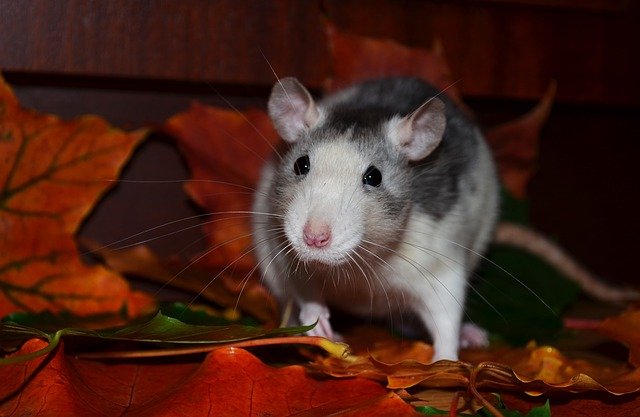Top Tips for Helping Pet Owners Prevent Health Risks and What to do About It

After a long day of work, your pet is ready and waiting to greet you as enthusiastically as if it had been years since you left. You can't help but smile as your four-legged friend jumps on you, nuzzles under your chin and rubs his head on your face. You stop to think: He's adorable, but is he also spreading germs?
It's a valid concern. Although pets are intended to be man's best friend, they can offer a health risk to their owners if they are infected with parasites, bacteria, or viruses. These diseases are known as zoonotic diseases (pronounced “zoh-uh-NOT-ik”), meaning that they are transmissible from animals to humans. According to the Centers for Disease Control and Prevention (CDC), the United States alone is home to more than 100 zoonotic diseases.
You love your pet, but there's a dark side to this relationship that few pet owners know about. You could be at risk for some surprises of the unpleasant sort if you fail to take precautions.
A zoonotic disease is an illness that's transferred from an animal to a human. More than 150 known zoonotic diseases exist, and many more diseases are still being discovered. According to the Centers for Disease Control and Prevention, six out of ten Americans become ill each year as a result of tainted food.
Many bugs and parasites can be transmitted to humans through contact with a pet's saliva, urine or feces, or through contact with the pet itself.
The most commonly encountered animals in households are cats, dogs, rodents and birds, but reptiles, amphibians and fish also are popular.
In recent years the pet population has increased dramatically. At the same time there is a growing appreciation of the health risks associated with pet ownership.
How do I keep myself and my pet safe?
Here are some simple precautions you can take to keep you and your furry friend healthy:
- Wash your hands thoroughly with soap and water
right after touching, feeding, or caring for animals; after handling pet food or treats; after cleaning up pet waste; and after touching anything in the area where your pet lives, eats, or goes to the bathroom. Scrubbing for 20 seconds is critical for removing germs. Alcohol-based hand sanitizers do not kill all types of germs that can make people sick.
- If you have a cat, never let it lick your face.
Cats carry a parasite called Toxoplasmosis that can cause serious illness in pregnant women and people with compromised immune systems. Cats can only transmit the parasite through their feces.
- Dogs may be man's best friend, but they are also responsible for many cases of salmonella.
a severe food poisoning that is often fatal in young children. Always wash your hands after touching or feeding a dog or cleaning up its mess.
Illnesses like ringworm and pinworms are spread by dogs, they are very common in children so if your child is showing symptoms such as dizziness or loss of consciousness, contact the doctor immediately.
- Some birds carry Salmonella
which can cause diarrhea and vomiting. Many people who have pet birds don't realize that the bird is the source of their illness. Keep your bird's cage clean to prevent this from happening.
- Keep your pet's vaccinations up to date.
If your dog is unvaccinated, she could bring fleas into the house. Fleas carry a parasitic infection called plague that can cause serious illness or death in humans.
- Don't let pets lick open wounds on children or adults.
If this occurs, wash the wound thoroughly with soap and water.
- If you have allergies, you may want to think twice before getting a pet.
Pets can cause symptoms such as sneezing and congestion that are similar to those caused by other allergy triggers.
- Pet dander, or the tiny skin flakes that pets shed, is a common allergen.
Dander is not just found on dogs and cats — it's also in the feathers and droppings of birds and rodents, too.
If you're allergic to certain animals but can't bear the thought of not having one, talk to your doctor about ways to minimize your exposure to allergens. It may be enough to keep your furry friend out of the bedroom. If not, you might need to consider giving him or her up for adoption.
- Asthma
Having a dog or cat increases the risk for children developing asthma. Pet dander can trigger symptoms in children with asthma who are sensitive to pets. The risk appears highest in children exposed to cats when they're infants.
The good news is that keeping pets outdoors may reduce this risk. And if you have a cat that spends time indoors, regular bathing can help reduce dander levels as well as other allergens, such as dust mites.
Even healthy pets can be carriers of parasites, germs, or viruses that can cause mild to severe sickness in humans. Over 100 of the 250 zoonotic diseases — infections spread between animals and humans — are caused by domestic pets.
Due to the fact that the majority of zoonotic diseases are under-diagnosed or are not reported to public health authorities, no one knows for certain how many instances occur each year. And, while disease transmission is modest in relation to the number of individuals who sleep with their pets – more than half of all pet owners in the United States – the risks remain. In the United States, researchers believe that several million infections are transmitted annually between dogs and people, ranging from skin disorders to life-threatening illnesses.
In summary, sleeping with a pet may not be a good choice.Roundworm, ringworm, intestinal worms, feline scratch disease, and narcotic staph infections are just a few of the ailments that can be transmitted to people by sleeping with, kissing, or being licked by their cat or dog.
Pets can be a source of comfort and joy, but they can also be a source of bacteria. If you have a weakened immune system or chronic illness, the potential hazards of owning a pet should be considered.
To prevent and detect infections early, maintain your pets flea and tick free, deworm them frequently, and have them inspected by a veterinarian on a regular basis.
Individuals with compromised immune systems are more likely to contract a disease out of an animal. Seniors, children under the age of five, those living with Aids, and terminally ill people are all included.
This is not supposed to intimidate you away from owning a pet in any way. In reality, the health benefits of pet ownership should indeed outweigh the potential hazards. Numerous studies demonstrate conclusively that pets can aid in the healing and alleviation of health concerns. Patients who have pets after a heart attack survive longer. Even observing a tank of tropical fish appears to help decrease blood pressure. Psychology Articles, for the time being. Bringing a pet into a nursing home has been shown to increase residents' moods, desire for social interaction, and capacity to interact socially.
Pets benefit humans…but on the flipside, we can also do things to make our pets’s lives better and safer. As pet lovers, it is our responsibility to prevent these infections from harming our furry friends (and the rest of us). So at the end of the day, your pet needs you—just as much as you need them.





